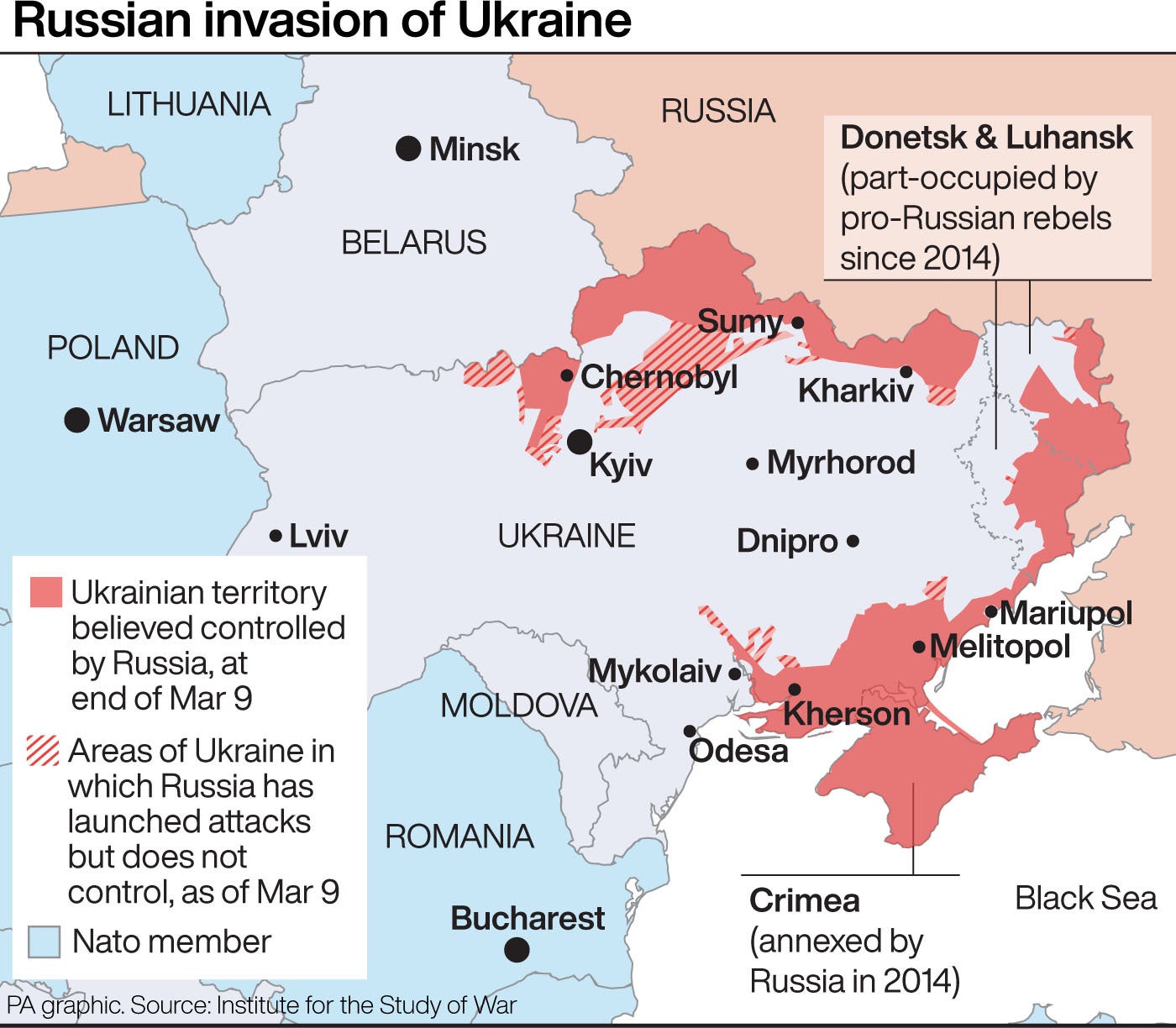WHO urges Ukraine to destroy high-threat pathogens to prevent ‘potential spills’ from bombed labs
Bombardment of Ukrainian cities could increase risk of disease spread if public health labs are damaged
The World Health Organisation (WHO) has advised Ukraine to destroy “disease-causing pathogens” housed in the country’s public health labs at the risk of spilling and spreading diseases if bombed, as the Russian invasion of the country continued.
The UN health agency told Reuters on Thursday that there was a risk of disease spreading among the population if “high-threat” pathogens were not destroyed to prevent “any potential spills”.
The WHO did not provide details about what kind of pathogens or toxins could be inside Ukraine’s laboratories.
Pathogens are disease-causing microbes.
Biosecurity experts have said the bombardment of Ukrainian cities and troop movement has raised the risk of the escape of disease if such labs are damaged.
Ukraine’s public health labs were involved in research work on how to mitigate the threat of dangerous diseases, including Covid-19, like many other countries.
The country’s labs have received support from the US, the European Union and the WHO, the report said.
WHO said it has been collaborating with the country’s public health labs for several years to promote security practices that help prevent “accidental or deliberate release of pathogens”.
“As part of this work, WHO has strongly recommended to the Ministry of Health in Ukraine and other responsible bodies to destroy high-threat pathogens to prevent any potential spills,” the global health agency said.

The agency’s remarks come as Russia has accused Ukraine, without providing any evidence, of secretly operating chemical and biological weapons laboratories at the behest of the US.
In a tweet, the Russian embassy in London repeated a longstanding claim that cited “recently found documents” that it said showed components of biological weapons were made in Ukraine’s labs with the help of the US Department of Defence.
At the same time, Russian media and right-wing news outlets have promoted the theories and also mischaracterised testimony given to the Senate Intelligence Committee on Tuesday by Undersecretary of State Victoria Nuland regarding “biological research facilities” in Ukraine.
The US promptly dismissed the claims that emerged from Russia, calling them “laughable” and warned the country was laying the groundwork for using chemical or biological weapons against Ukraine.
“The Russian accusations are absurd, they are laughable and you know, in the words of my Irish Catholic grandfather, a bunch of malarkey. There’s nothing to it. It’s classic Russian propaganda,” Pentagon spokesman John Kirby said on Wednesday.
A Ukrainian presidential spokesperson has also said the country “strictly denies any such allegation”.
Meanwhile, the WHO made no reference to biowarfare. It said it encourages all parties to cooperate in “the safe and secure disposal of any pathogens they come across and to reach out for technical assistance as needed.”
It offered to help with technical guidance and coordination to the countries and Ukraine.
The Independent has a proud history of campaigning for the rights of the most vulnerable, and we first ran our Refugees Welcome campaign during the war in Syria in 2015. Now, as we renew our campaign and launch this petition in the wake of the unfolding Ukrainian crisis, we are calling on the government to go further and faster to ensure help is delivered.
To find out more about our Refugees Welcome campaign, click here. To sign the petition click here. If you would like to donate then please click here for our GoFundMe page.
Join our commenting forum
Join thought-provoking conversations, follow other Independent readers and see their replies
Comments
Bookmark popover
Removed from bookmarks